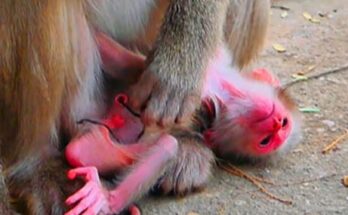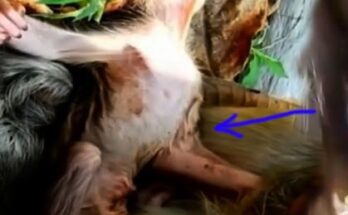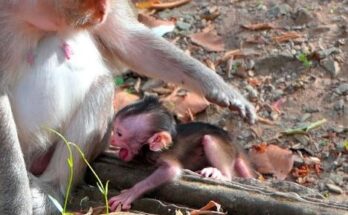In the animal kingdom, maternal instincts are typically strong, ensuring the survival of offspring. However, there are instances where mother monkeys unexpectedly reject their babies, leaving them vulnerable and confused. This behavior, though heartbreaking to witness, can have various causes rooted in biology, environmental stress, and social dynamics within a monkey troop.
One possible reason for a mother monkey rejecting her baby is inexperience. First-time mothers may struggle to bond with their newborns, leading to neglect or outright abandonment. In some cases, the mother may not recognize the infant as her own, particularly if there were complications during birth or if the baby was handled by humans or other monkeys immediately after birth.
Another significant factor is the health of the baby. If the newborn is weak, sick, or has genetic abnormalities, the mother may instinctively reject it. In the wild, survival of the fittest is a crucial principle, and a mother might abandon a weak baby to conserve her energy for future offspring. This behavior, though seemingly cruel, is a natural selection mechanism.
Social hierarchy also plays a role. In some monkey species, dominant females may prevent lower-ranking mothers from properly caring for their young. Stress, lack of food, or frequent conflicts can make a mother anxious or unable to nurture her baby. In extreme cases, mother monkeys may even attack or kill their own infants, a phenomenon observed in species where infanticide occurs.
Despite the rejection, baby monkeys sometimes find surrogate mothers within the troop or among human caregivers in rescue centers. Understanding the reasons behind maternal rejection helps researchers and conservationists develop better strategies to support orphaned primates and ensure their survival in both captivity and the wild.


